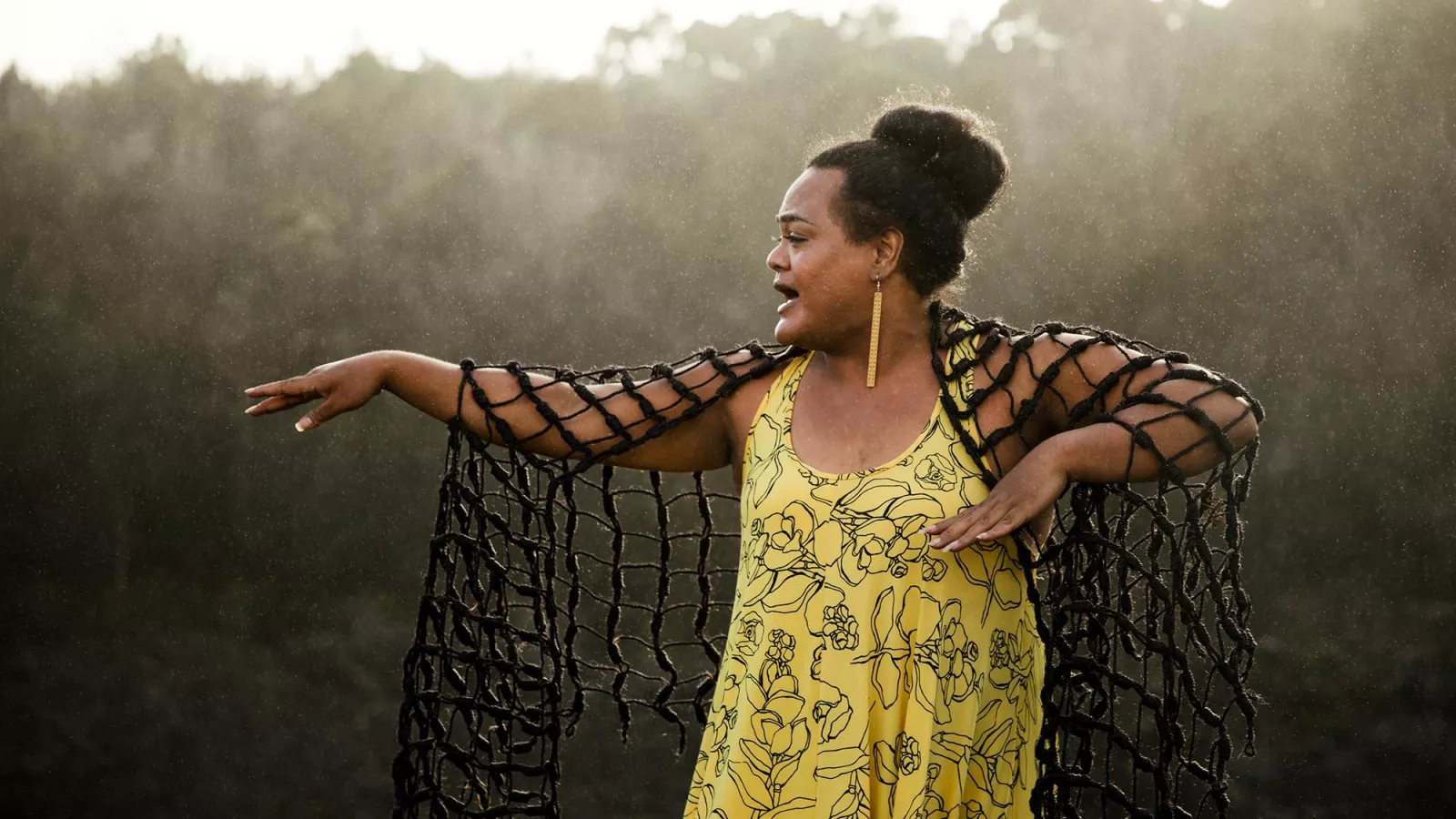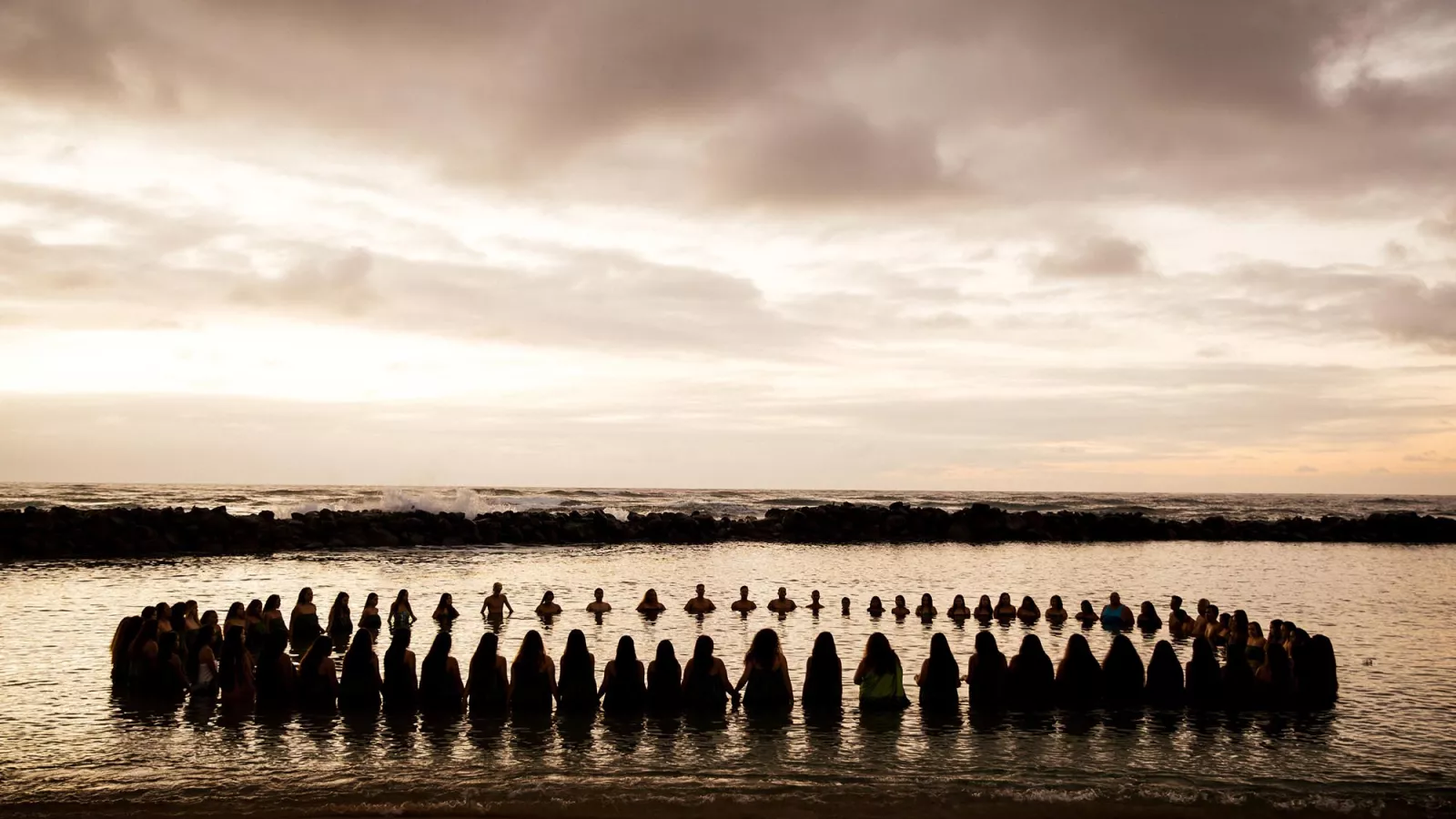


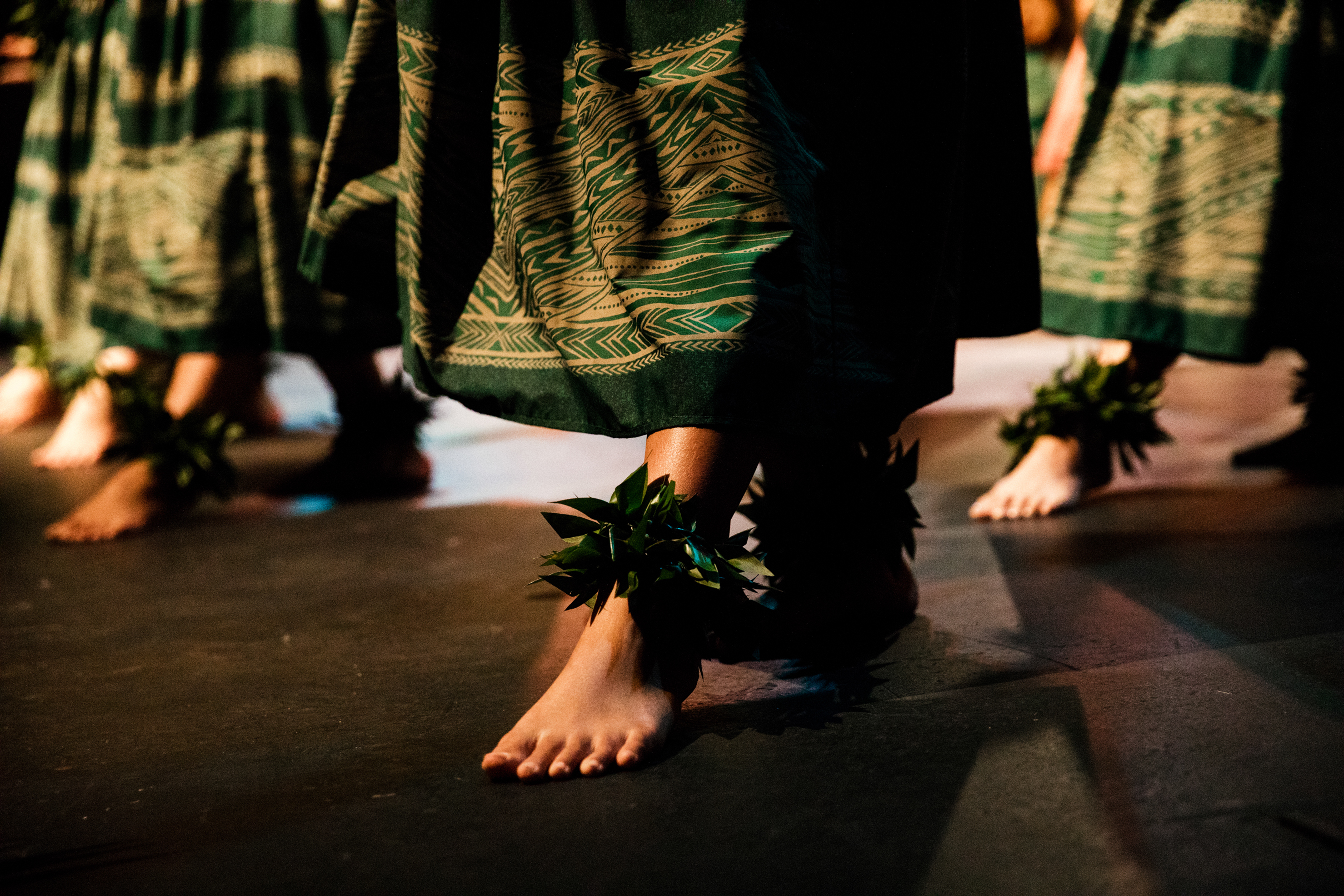

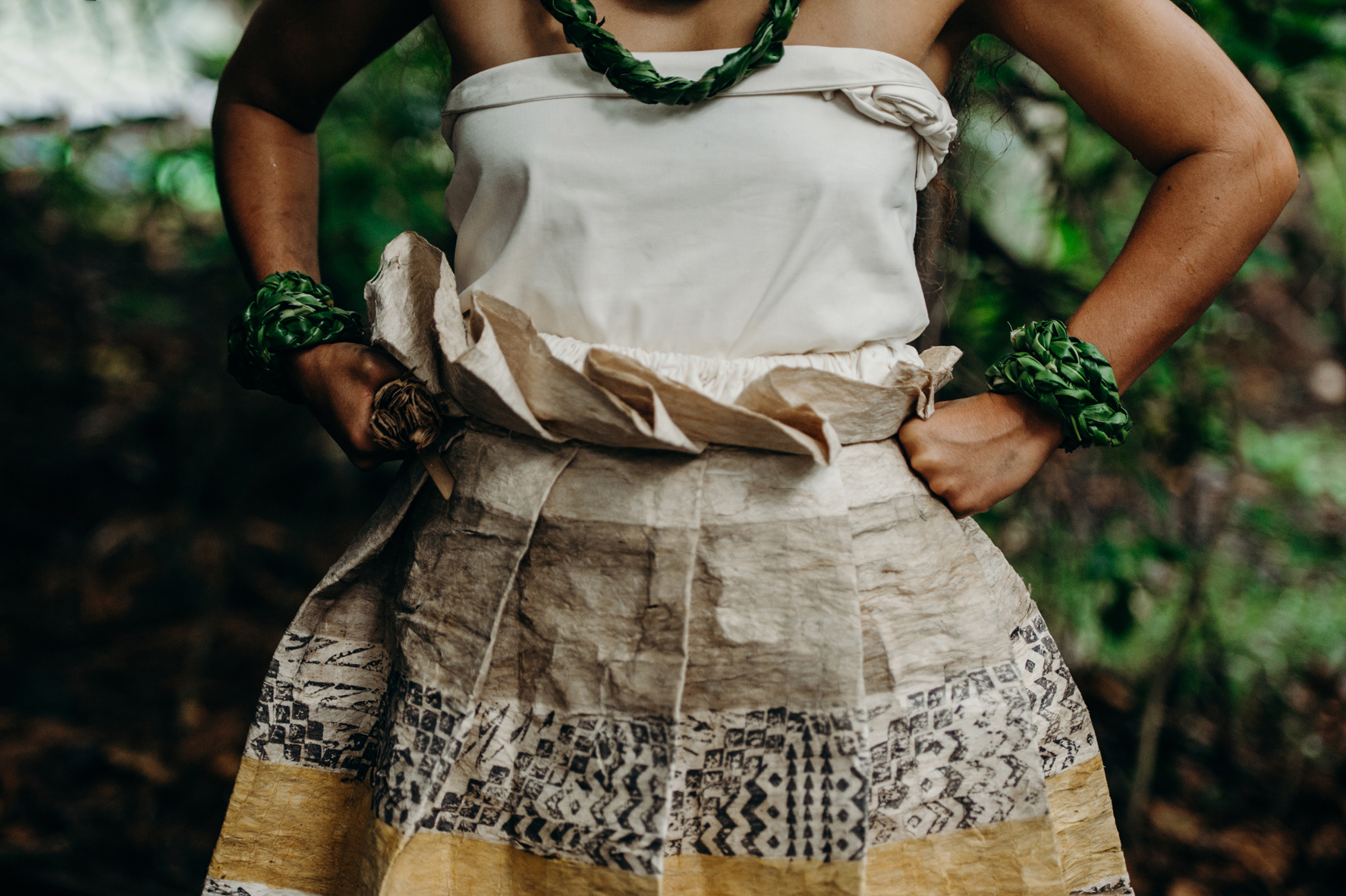
 Hula
Hula
Hula in the Hawaiian Islands
On its surface, hula is the storytelling dance of the Hawaiian Islands. As with all of Hawaiian culture, when you are fortunate enough to learn more about it, much deeper, more powerful and empowering truths may be revealed. Hula can be paired with chants or contemporary music, slow and sentimental in tempo or fast and energetic. But no matter its style, it is all part of a cultural practice of sharing a trove of stories that connect dancers and audiences to the foundation of Hawaiian ancestral knowledge. Hula animates history, genealogy, prophecy, and the tales of those who came before.
For dancers who connect more deeply through their hula traditions, dance is just one part of the practice, which often involves stewardship of the environment. For example, there may be a reciprocal relationship where dancers care for the forests, which in turn provide for them, including ferns, maile and other materials to make lei and garb that enliven the performance. Practices differ from hālau (hula school) to hālau, but they all aim to create a tangible, personal connection between the dancer, the stories he or she is dancing about, and the legendary origins of hula itself.
“Aohe pau ka ʻike i ka hālau hoʻokahi. No one school contains the totality of all knowledge. A proverb that encourages respect of differing traditions, in hula and otherwise.”
Hawaiian Hula in Action
Find More Information About Hula
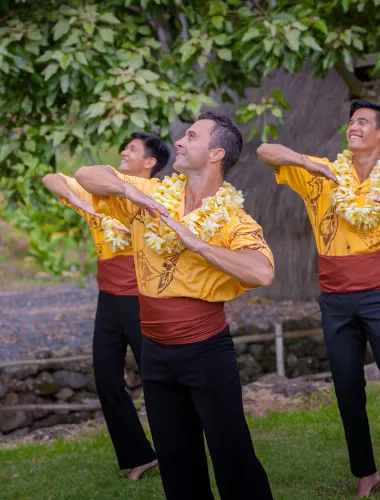
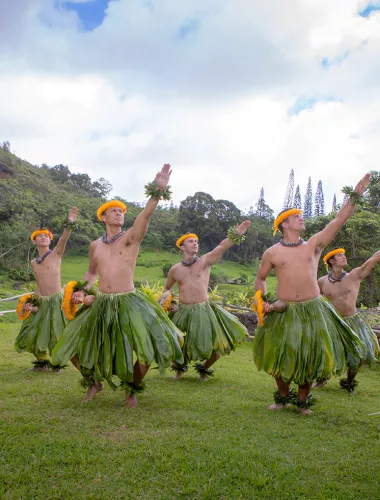
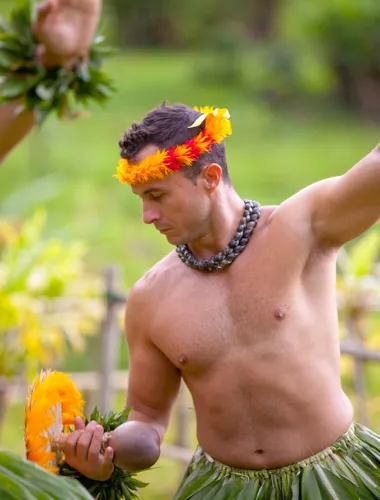
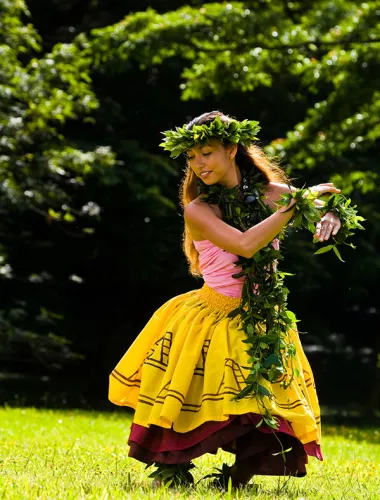
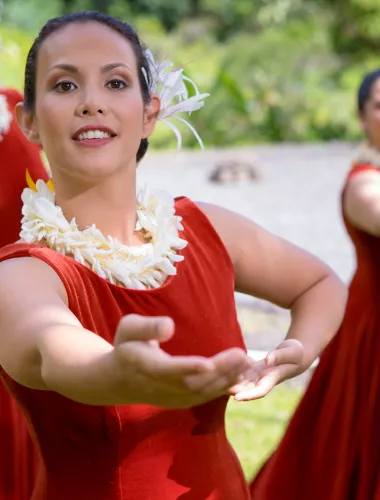
Hula Terminology
Kahiko: ancient, long ago.
'Auana: to wander, drift, go from place to place.
Hālau Hula: Hula School
Kumu Hula: Hula Teacher
Ho‘omākaukau: To prepare, make ready.
Often used by the kumu hula (hula teacher) before the hula performance has begun to signal the hālau to get ready.
'Ae: yes; to say yes.
The hālau’s response to the kumu hula, letting him/her know they are ready to begin.
Pā: a sound; to sound; beat; signal to begin a dance
Hā‘ina: the two or more last verses of a song.
You may hear this term used by the hālau in the middle of the performance. This means the hālau is nearing the end of the song, the end of the story.
See Hula Performed at a Lūʻau
Please note: We apologize for any inconvenience, but our preferred business listings below are in English only.

